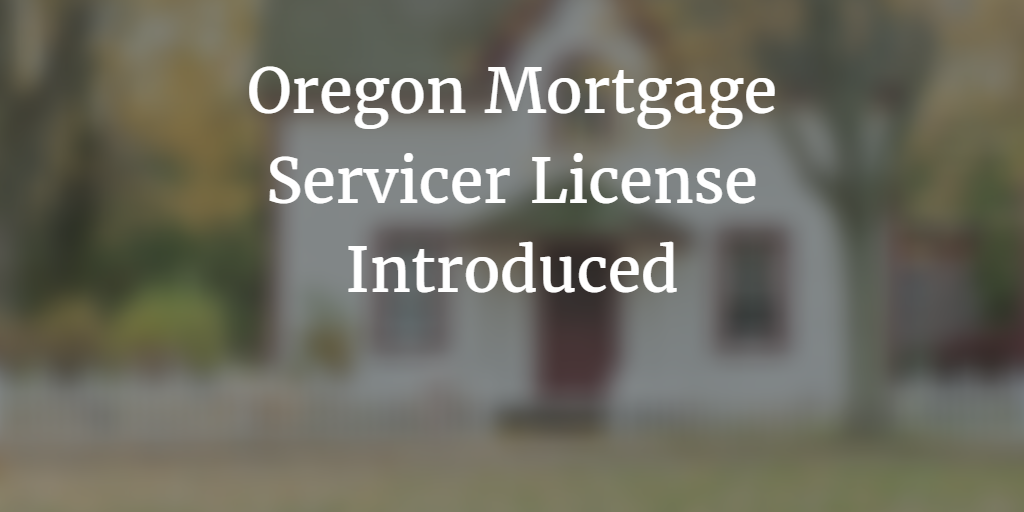The Oregon Division of Financial Regulation is now accepting Oregon mortgage servicer license applications. The passage of Senate Bill 98 in August 2017 established the new license and regulations and, although applicants may begin applying for their license on November 1, the law officially becomes effective on January 1, 2018. After January 1, anyone who acts as a mortgage servicer in Oregon must be licensed in the state. Per the Division of Financial Regulation website, temporary rules are being implemented to accept applications prior to the legislation’s effective date, with more permanent rules to follow shortly thereafter.
What is the difference between a mortgage loan originator and a mortgage servicer?
A mortgage originator—most commonly a mortgage broker or banker—works with borrowers to complete mortgage transactions, while a mortgage servicer collects loan payments from borrowers in addition to other mortgage-related services including borrower inquiry responses, keeping track of principal and interest paid, and escrow account management. Although mortgage loan originators and mortgage servicers are different from one another, it is possible that a company may act as both a mortgage loan originator and a mortgage servicer. However, the new requirements in Oregon mandate that, even if a mortgage loan originator is currently licensed as such, a separate license must be applied for and approved by the Division before they may act as a mortgage servicer.
How do Oregon mortgage servicers apply for a license?
Although it is the Oregon Division of Financial Regulation who ultimately approves or denies an application, all applications and application materials must first be electronically submitted via the Nationwide Multistate Licensing System & Registry website. The following materials must be submitted and fees must be paid before an application may be approved by the Department:
- Payment of applicable fees
- Oregon Registration ($960)
- NMLS Initial Processing ($100)
- Credit Report for Control Persons ($15 per person)
- FBI Criminal Background Check for MU2 Individual ($36.25 per person)
- Submit company form (MU1)
- CPA-prepared financial statement
- Control person attestation and authorize credit report
- Business plan (marketing strategies, products, fee schedule, etc.)
- State-issued certificate of authority or good standing certificate
- Formation documents related to company structure
- Management chart (directors, officers, managers) & Organizational chart (direct owners, indirect owners, subsidiaries and affiliates)
- $50,000 surety bond or letter of credit (LOC must be mailed to Oregon)
For a more in-depth look at each of these licensing requirements, the NMLS provides a license checklist for Oregon mortgage servicers.
What is the cost for a $50,000 Oregon mortgage servicer bond?
An applicant wishing to get a surety bond for their Oregon mortgage servicer license must submit an application with a surety bond provider. Once the application is received, an underwriter will review the applicant’s qualifications to determine the risk associated with issuing a bond. Factors that are commonly taken into account when determining the premium to be paid by an applicant include personal credit, financial standing, and experience within the industry.
If it is determined that an applicant is highly qualified, they will typically be approved for their bond at 1-3% of the total bond amount, meaning that they will pay between $500-$1,500 for their mortgage servicer bond. Applicants who are slightly less qualified will pay more at the time of their initial application, but they may see a reduction in their premium if the underwriter determines they are more highly qualified at the time their bond comes up for renewal.
If you have questions about getting a surety bond in Oregon or are ready to submit an application, give our experts a call at 1 (800) 308-4358 or click the button below.

